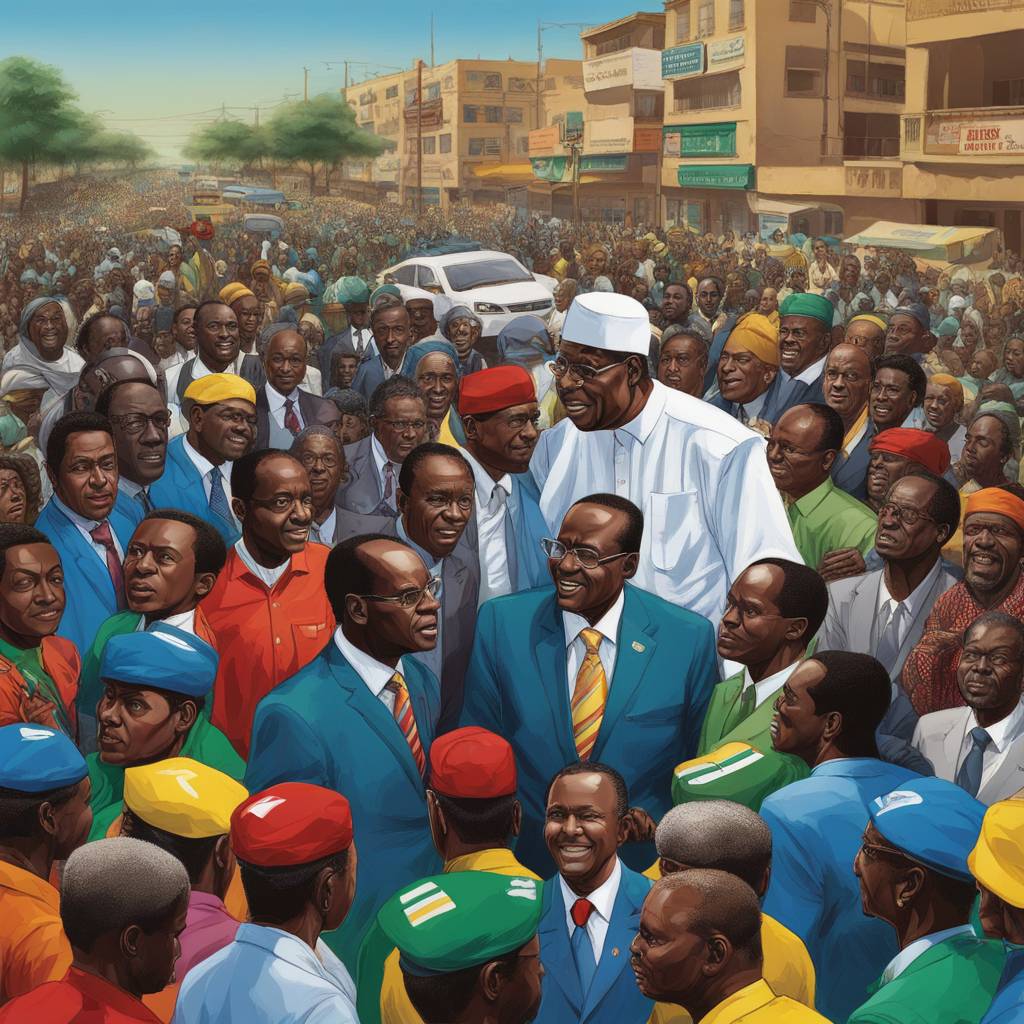In Senegal, the upcoming presidential election has put a spotlight on candidates who have backgrounds as tax inspectors. Among the 17 presidential hopefuls, figures like Amadou Ba, Bassirou Diomaye Faye, Mame Boye Diao, and former favorite Ousmane Sonko have garnered attention due to their past or current positions as tax inspectors. While some view their wealth and financial expertise as assets for the country, others see them as examples of individuals with power and influence who are well-equipped to participate in the political sphere.
According to Alioune Tine, a prominent Senegalese political analyst, candidates like Ba, who was a former prime minister and involved in the economics ministry, are seen as having the financial means and background necessary to vie for the presidency. For voters like Ousmane Guisse, a 37-year-old insurance broker, Ba’s rise from a simple inspector to a director general and minister demonstrates his competence and worthiness to lead. Others, like Diao and Sonko, have also held positions of authority within the government and have chosen to pursue their own campaigns for the presidency.
Sonko, a former tax inspector turned opposition leader, faced legal troubles and was barred from running in the elections. Despite controversies surrounding his leadership, Sonko has gained a following for his promises to change the country and fight for the people. Faye, another tax inspector and opposition figure, has also emerged as a favorite in the elections and leads a party formed out of the syndicate of tax and estate agents. Both the establishment and the opposition led by tax inspectors seem to have gained the trust of the people, regardless of their backgrounds.
The reputation of tax inspectors in Senegal, as viewed by some, can be both positive and negative. While some see figures like Sonko and Faye as representing a new vision of transparency and accountability, others view them as part of a corrupt system that hinders personal wealth and business growth. Tax inspectors are often perceived as the wealthiest individuals due to their position, which can raise concerns about corruption and elitism. The reluctance of certain candidates to disclose their assets and campaign funds further adds to suspicions about their integrity in public office.
Different voters have varying perspectives on the role of tax inspectors in politics. Some, like Pathe Thiam, a student, believe that tax inspectors have politicized their positions and neglected their duty to the republic by not being transparent about their finances. Others, like Vieux Aidara Moncap, an activist, feel that the profession of tax inspector is irrelevant to why certain candidates have been selected to lead political parties. In the end, it is the policies and positions of the candidates that matter more to voters, as they consider who is best suited to bring about positive change and represent their interests in government.



